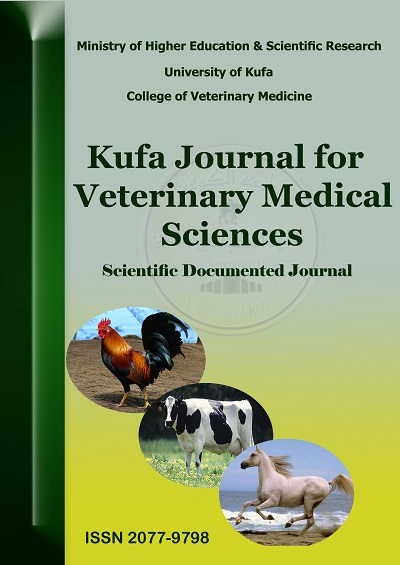Modulation of some cardiovascular risks factors with different doses of Quercetin in patient with rheumatoid arthritis treated with Azathioprine
DOI:
https://doi.org/10.36326/kjvs/2010/v1i14227Keywords:
Azathioprine, Anti-oxidant, Cardiovascular, inflammatory processAbstract
Cardiovascular diseases are increasingly recognized contributors to increased morbidity and mortality in rheumatoid arthritis (RA). Attention to this feature of RA has been drawn by recognition of the key role played by inflammation in atherogenesis. This may be related to an atherogenic lipid profile and endothelial dysfunction. Conventional treatments of RA patient does not greatly affect those risk factors . Moreover , they may aggravate them and carry a potential adverse effects. Quercetin is a versatile flavonoid and has several biological activities that can abolish most of the undesirable effects of the inflammatory process associated with RA. It has well known anti-inflammatory, anti-oxidant and cardioprotective properties. In this work we investigated the effect quercetin on lipid profile and sICAM-1 in160 RA patient treated with azathioprine for 8 weeks. Patient are divided into 4 groups each group was treated either with azathioprine ( Aza.) combined with different doses of quercetin(500, 1000, 1500mg/day) . In addition, 30 apparently healthy volunteers were participated and served as control group. Blood samples of the patients taken at zero time and after 8 weeks , converted to serum and analyzed for ICAM-1 and lipid profile Results shows a significant ( P>0.05) reduction in serum level of sICAM-1 in all doses tried in this study . Significant reduction in both total cholesterol ( TC) and low density lipoprotein cholesterol (LDL-c) specially at a dose of 1500mg/day quercetin . High density lipoprotein cholesterol had increased in all doses quercetin as well as azathioprine only treated group. The atherogenic index TC/HDL-c ratio had improved in all groups with no significant effect on triglycerides.
From this study we conclude that although the treatment of RA patient with azathioprine improve some cardiovascular risk factors specially lipid profile , the addition of quercetin to such patients greatly and significantly improve lipid profile and reduce the level of ICAM-1 which are important risk factors for atherogenesis . It has also concluded that 1500mg/day of quercetin gave an attractive results compared with other doses used in the study.
Downloads
Downloads
Published
How to Cite
Issue
Section
License
Copyright (c) 2023 Shatha H. Ali, Hamadallah a Al-Bsaisi, Mohammad a Al-Rekabi

This work is licensed under a Creative Commons Attribution 4.0 International License.













